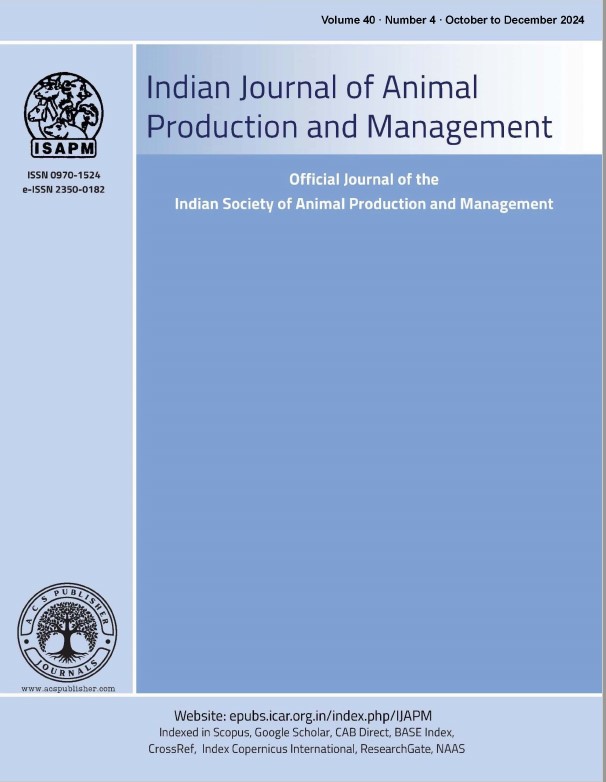EFFECT OF FOGGERS ON MICROCLIMATIC CHANGES AND PHYSIOLOGICAL RESPONSES OF MEHSANA BUFFALOES IN SUMMER SEASON
Keywords:
Physiological Responses, Microclimatic Changes, Fogger, BuffaloAbstract
The trial was conducted during hot dry season when the average maximum temperature was 38.54°C (36.60 to 40.20°C) and relative humidity was 53.45% (46.00 to 60.00%) at Livestock Research Station, S.D.A.U, Sardarkrushinagar. The average dry bulb temperature decreased by 0.19°C and relative humidity increased by 2 - 2.5 % due to cooling effects of foggers at afternoon hours in experimental shed. The animals were divided into two groups of six each. Buffaloes of Group I were kept under loose housing without foggers (control), while buffaloes of group II were kept under loose housing with foggers (experimental). The foggers were operated daily during hot hours from 12:00 to 15:00 p.m. in experimental shed. The fogger cooling system was automatically controlled by an electronic timer and run for 3 min after an interval of every 2 min (36 min/hour) from 12:00 to 15:00 hours. The mean values of physiological responses for rectal temperature, respiration rate and pulse rate of both the groups were not different during morning but varied (P<0.01) in the afternoon. Water cooling through foggers played important role in body comfort of animal which is evident from the lower rectal temperature, respiration rate and pulse rate of Mehsana buffaloes in experimental shed by 0.55°F, 4.56 counts/minute and 5.62 beats/ minute, respectively at the peak hot period of afternoon hours.

